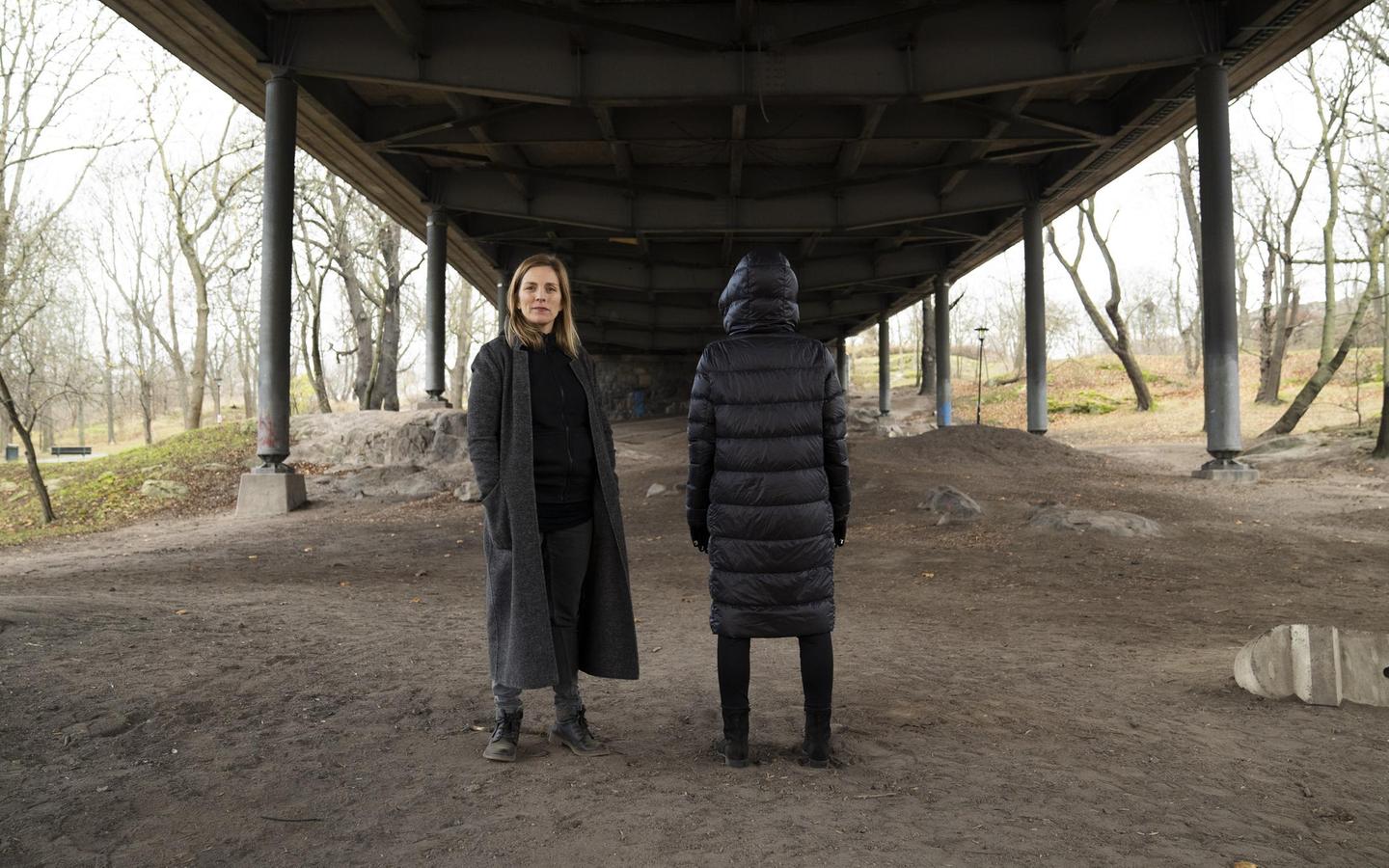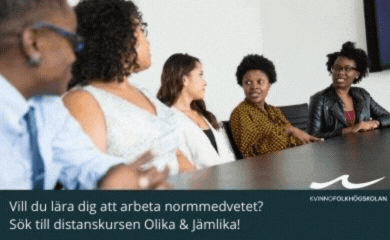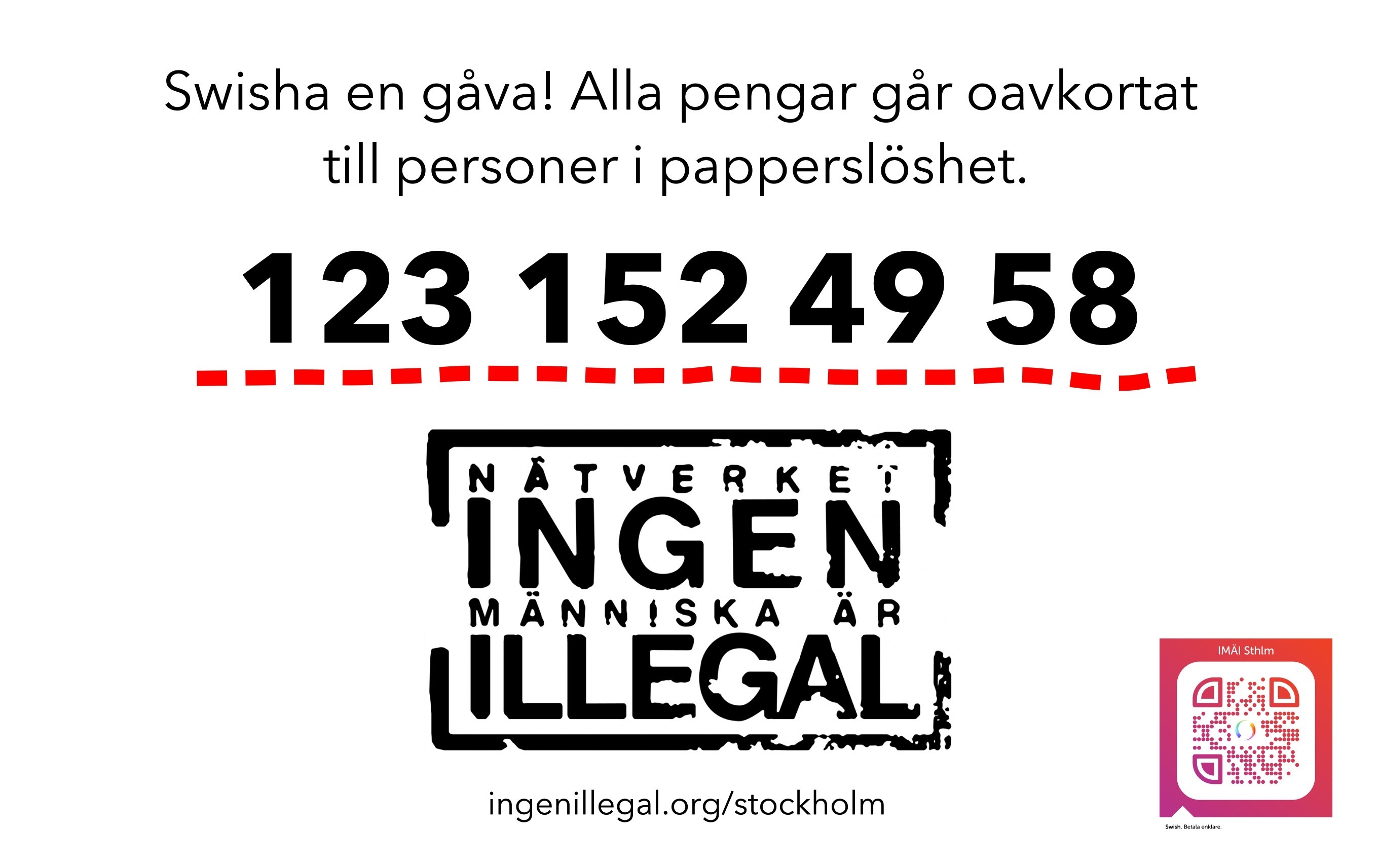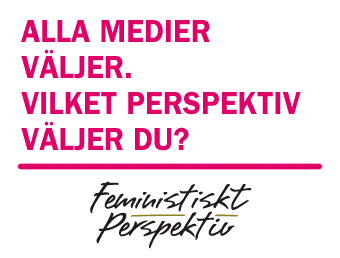
Bild: Lovisa Thuresson/Kalla fakta
Assange, Ardin, and the smear campaign of the millennium
2021-02-12 | Anna-Klara Bratt

INTERNATIONAL
”Anna Ardin suing Julian Assange for defamation is a mind-boggling and tempting thought”, Anna-Klara Bratt writes after plaintiffs in the closed sexual crime case break their ten years silence.
RELATED ARTICLES:
2020-03-06 | UN support for conspiracy theory on Assange rape case
2020-01-10 | #bywhatright: Upholding the law
2020-01-10 | #metoo: Why massive mobilization swept Sweden
During the defamation trial against Swedish journalist Cissi Wallin in spring 2020, Fredrik Virtanen described thoroughly the nightmarish months that passed since he was named as a rapist on Twitter in 2017 up until he now sat in court and had lost everything. The court ruled in favour of the prosecutor and sentenced Cissi Wallin to pay 90,000 SEK in damages. The court had taken a stance to Virtanen’s significance and the extent of damages.
At that point Virtanen had also told his story in a book, in [the TV-program] Uppdrag Granskning, in Swedish public radio and after the trial he repeated everything again in evening news Expressen’s TV-channel.
For those of us who followed the public tribunal slash internet mob against Anna Ardin for ten years, some of Virtanen’s experiences are recognized. Not being able to go out, constantly looking over one’s shoulder, not being able to eat, not being able to sleep, suddenly having to vomit as a physical reaction when pressure becomes too overwhelming – life in the eye of the storm is both quiet and clamorous.
Friends disappear, become insecure, no longer want to be associated with you. They have their own problems, or loyalties.
It’s difficult to grade someone’s hardships, exposure, experiences and emotions. When Anna Ardin returns to Sweden after a few weeks of exile in Spain, when the death threats have become so severe that the police believe that Ardin’s life is in danger, she has no job, no apartment, no colleagues, no home.
Her attempts to respond to the worldwide mob’s worst allegations only worsen the situation. The mob, who is fired on by selected, leaked parts of the preliminary investigation, takes the shape of a large and serious global slander campaign. According to Julian Assange, Anna and Sofia are CIA agents on a mission to entrap him. Anna Ardin decides to stay quiet. To not say a word until the legal proceedings have come to an end. The internet mob vs Democracy 1–0.
The release of Nicke Nordmark’s documentary A decade in the Shadow of Assange by TV4’s Kalla Fakta (”Cold facts”) is about the ten years that passed since the day Anna Ardin decided to accompany the other woman who appears in the crime accusations against Assange, Sofia, to the police.
Nordmark has followed the two women, the mob, and the legal proceedings, that, at every occasion, generated big headlines and assertive statements in large parts of the world, based only on Assange’s frequent and one sided statements and lies. It’s really gut-wrenching.
When Anna Ardin went to the police in 2011, she had no intention of reporting Julian Assange. On the contrary, it would go against her duties as the press secretary at the organization that just invited Wikileaks to Sweden. However, she feels she should accompany Sofia as a witness and to support her.
What happens next – that a prosecutor issues an arrest warrant for Julian Assange – is soon front-page news. Worldwide.
Writer Somar Al Naher is the childhood friend who accompanies Anna Ardin to Barcelona when police advise her to leave the county. Police drive them to the airport - and then they are left to their own devices. They are scared. A man in the dining room stares at them, and soon an article revealing that Ardin is in Spain spreads. Despite new hair color, hairstyle, and low profile. She is tired, worn out, anxious and betrayed.
No embassy to seek refuge in, no army of international celebrities who can make assertive statements about what happened those nights in 2010. Somar states in the documentary that the ten-year slander campaign came with a prize. Her childhood friend is no longer the same. She managed to get through it, but she is changed.
By the end of January, Anna Ardin’s own story, the book In the Shadow of Assange – my testimony was published. The other side of the story, half of the puzzle pieces, if you will. Anna Ardin never had the choice to remain anonymous, even though she made an attempt to delete tweets and blog posts. Photos of her was already viral. Her address, social security number, previous workplaces as well.
The reason why the book is published now is that both her’s and Sofia’s cases are closed due to statute of limitation. We all know why. Assange kept away and he brought Wikileaks down with him.
The thought of Anna Ardin suing Assange for defamation is both staggering and tempting. The amount of headlines, allegations, accusations, the spreading of the material – can the damage even be measured? In how many states? What is the estimate of Anna Ardin’s value, how much is she supposed to be able to endure, in which country, and what’s it all worth?
However, Anna Ardin isn’t seeking retribution. She has forgiven the abuse itself, she says. The mob, on the other hand – which is still alive and kicking at various levels of society, and including high-profiled left-wing debaters and the UN Special Rapporteur on Torture, Nils Melzer, who was one of the people that read only parts of the leaked preliminary investigation – is worse.
It now seems as if Julian Assange has ended up where he belongs politically: with the support of Fox News, Sara Palin, and possibly former President Trump. That doesn’t change the fact that leaking documents and films on America’s war crimes was a good deed. But if the war crimes were the important issue, why not take the opportunity to do the tests and give the answers Swedish prosecutor needed, when Assange had the chance to be interrogated at the Ecuadorian embassy?
What if all the hours, headlines, funds raised and support had been directed to the civilians affected by the American war crimes in the Mena region? What if the same team of journalists had been able to sit down with the extensive material that Wikileaks had access to? All of this was blocked by Julian Assange.
Publishing the book and giving interviews about the missing puzzle pieces, might become an important part of Anna Ardin’s redemption. And not just for her, for others who have been slandered by mobs and defamation campaigns too. In the best of worlds, if it’s even possible it could also be helpful for those who find themselves in similar situations.
The Metoo movement showed that there are still difficulties with prosecuting sexual offences. Reports still encounter resistance at almost every instance. There is still an unmeasurable need for #redemption. This is clearly shown by Anna Ardin’s book In the shadow of Assange – my testimony.
Translation: Nordin Agency
Kommentarer
Du måste vara inloggad för att kunna lämna en kommentar.
























MEST KOMMENTERAT
SENASTE KOMMENTARERNA
Om Var Grupp 8 en feministisk organisation?
Om #bildskolan 21: Att äta Den Andre
Om #bildskolan 21: Att äta Den Andre
Om Porr handlar om betalda övergrepp
Om Nobels fredspris till kampanj för att avskaffa kärnvapen
Om Feministiskt perspektiv öppnar arkivet och startar på nytt!
Om Rödgrönt ointresse för fred och nedrustning borde oroa många
Om Var inte målet att vi skulle jobba mindre?
Om Feministiskt perspektiv öppnar arkivet och startar på nytt!
Om Feministiskt perspektiv öppnar arkivet och startar på nytt!
MEST LÄST